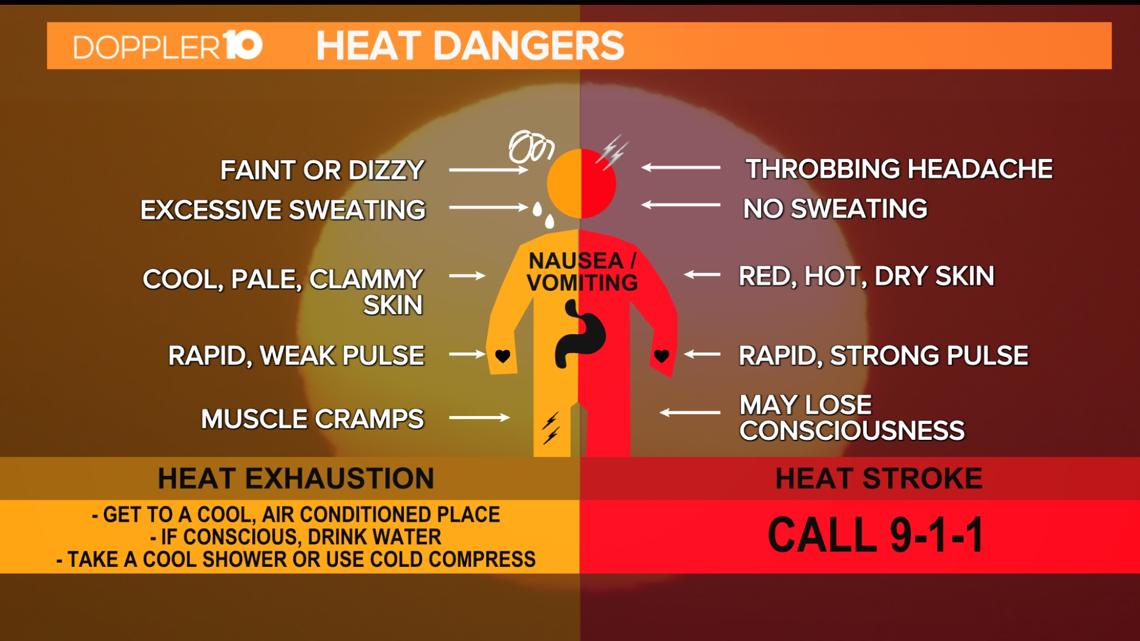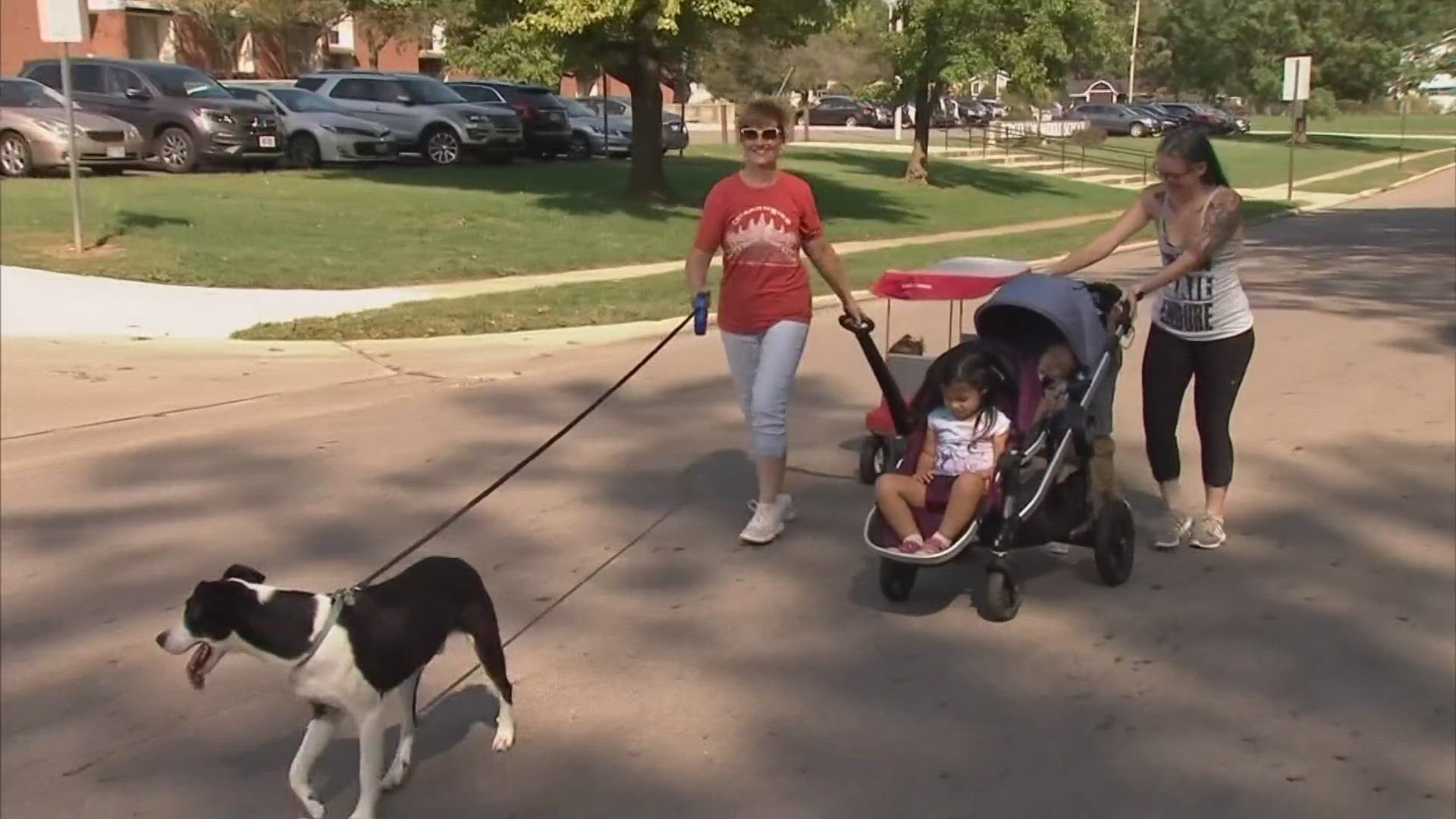COLUMBUS, Ohio — As temperatures heat up this summer, it will become even more important to be aware of the signs and symptoms of heat-related illnesses.
High temperatures pose the risk of illness for everyone, but some people are at a higher risk than others. Those groups include young children, the elderly, those who are overweight and those who have chronic medical conditions.
There are two main heat-related illnesses to be aware of: heat exhaustion and heatstroke.


According to the Centers for Disease Control, heat exhaustion is the body's response to an excessive loss of water and salt, usually through excessive sweating.
Symptoms of heat exhaustion include:
- Headache
- Nausea
- Dizziness
- Weakness
- Irritability
- Thirst
- Heavy sweating
- Elevated body temperature
- Decreased urine output
To treat heat exhaustion, get into a cool, air-conditioned place and drink water. Remove any unnecessary clothing including shoes and socks and cool down with cold compresses or wash the face, head and neck with cold water.
The CDC says heatstroke is the most serious heat-related illness. It occurs when the body can no longer control its temperature. It can cause permanent disability or death if the person does not receive emergency treatment.
Symptoms of heatstroke include:
- Red, hot and dry skin with no sweating
- Rapid pulse
- Slurred speech
- Headache
- Dizziness
- Nausea
- Confusion
- Unconsciousness
- Gray skin color
If a person begins to experience heatstroke, the first thing to do is immediately call 911. Move the person to a cool or shaded area and remove any outer clothing. Similarly to treating heat exhaustion, cool the person down with cold compresses or wash the face, head and neck with cold water.
Columbus Public Health reminds residents of ways to stay healthy and safe in hot weather:
- Drink plenty of water. Do not wait until you are thirsty.
- Stay in air conditioning whenever possible. If you do not have an air conditioner, use movie theaters, malls, libraries and other public places that are cool.
- Avoid beverages with alcohol, caffeine and sugar because they will dehydrate you.
- Eat light meals.
- Wear lightweight, light-colored clothing.
- Avoid strenuous activities and limit them to morning and evening hours.
- Learn the signs and symptoms of heat-related illnesses and how to treat them.
- Check on family members, friends and neighbors.
- Never leave people or pets in a closed car.

